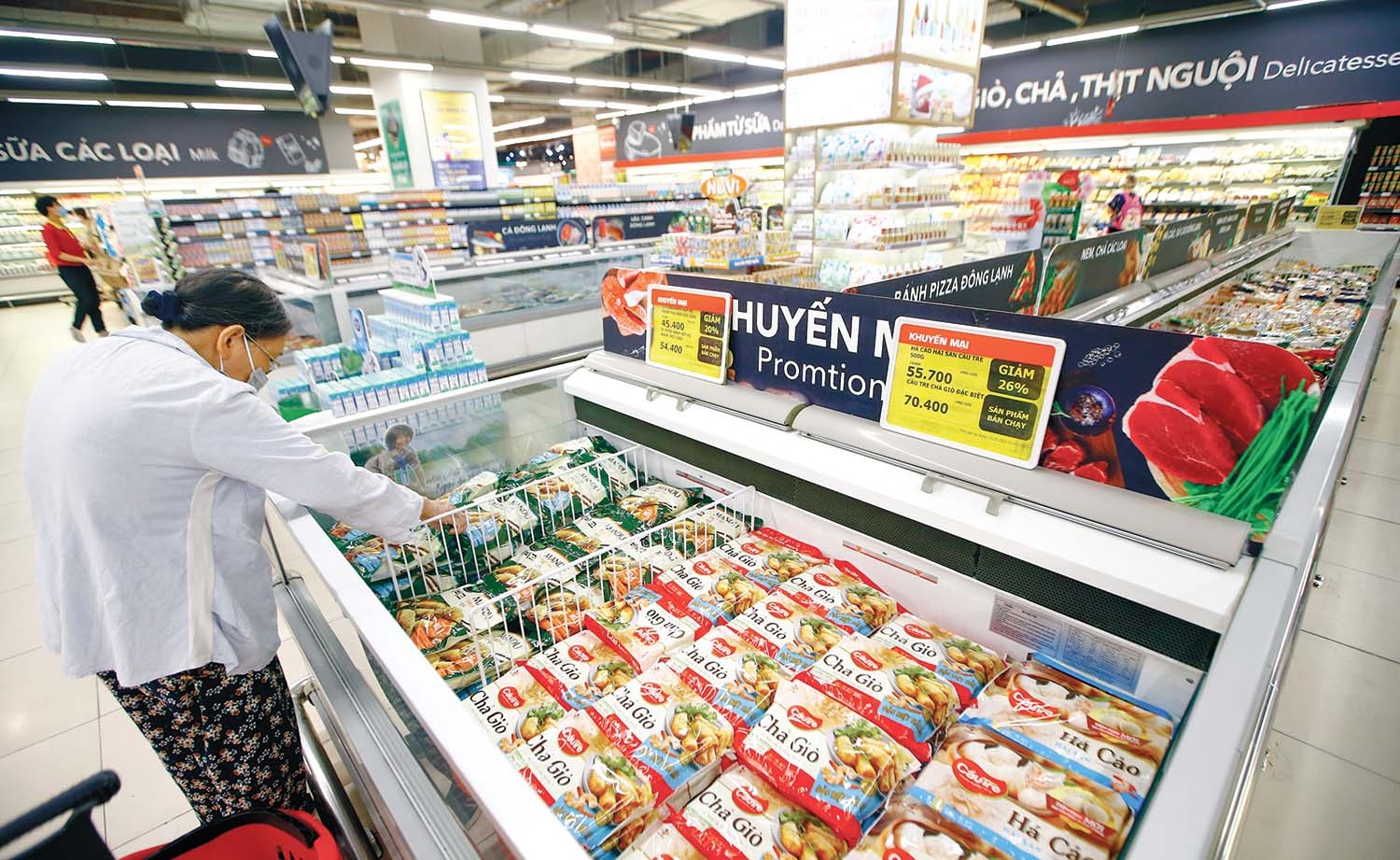Analysts cut Vietnam's 2022 inflation forecast
 |
HSBC Global Research has slightly revised its 2022 inflation forecast for Vietnam from 3.7 per cent to 3.5 per cent as stable local food prices will likely keep a lid on headline prices.
Energy price inflation has been persistent and transport prices rose to record highs, replacing food inflation to become the main driver of the nation’s headline inflation. On top of surging global oil prices, a domestic petroleum supply shortage has exacerbated Vietnam’s energy crunch.
Since January, Vietnam’s largest refiner – Nghi Son Refinery – has been running at a reduced operating rate, coming close to a shutdown in February, before improving to about 80 per cent capacity in March.
This has forced the authorities to look for alternatives to alleviate the energy pressure. The government has pledged to import an additional 2.4 million cubic metres of petroleum in the second quarter of the year, which is already reflected in Vietnam’s rising import data.
In addition, since April 1, the government has cut the environmental tax – the largest of all taxes and fees on fuel. Despite elevated energy prices, moderate food inflation – which has a bigger weighting in the CPI basket – has so far helped to curb the overall rise in headline inflation, according to HSBC Global Research.
Meanwhile, analysts from Maybank Vietnam also lowered their annual average headline inflation forecast for Vietnam slightly from +4 per cent to +3.7 per cent for 2022.
Vietnam's supply-side cost pressures stemming from high commodity prices have been exacerbated by current global events. Rising food protectionism has interacted with demand pressures from reopening and the return of tourists. These factors have culminated in a significant step-up in headline inflation since March.
However, Maybank Vietnam said that the rise in headline inflation (+2.3 per cent in the first five months of the year) has been more gradual than in most other ASEAN economies. This is in part due to Vietnam’s status as a significant agricultural producer.
The abundant domestic supply of crops and livestock, on top of government efforts to rein in price hikes, seem to have cushioned local food prices and are likely to continue putting a lid on the trajectory of the inflation increase over the coming months.
The World Bank advised Vietnamese authorities to be wary of inflation risks connected with rising fuel and import prices, which could stifle the gradual recovery of domestic demand. Temporary assistance, such as targeted transfers, should be considered to help impoverished households withstand the price hike.
Due to the fact that the commodity price shock appears to be primarily hitting oil and fuels, with a passthrough to transportation costs, a temporary targeted subsidy for major gasoline and fuel users should be considered to alleviate hardships and reduce inflationary pressures, the World Bank noted.
What the stars mean:
★ Poor ★ ★ Promising ★★★ Good ★★★★ Very good ★★★★★ Exceptional
Related Contents
Latest News
More News
- Spring Fair 2026 boosts domestic demand (March 02, 2026 | 16:30)
- Law on Investment takes effect (March 02, 2026 | 16:21)
- Ho Chi Minh City attracts nearly $980 million in FDI in early 2026 (March 02, 2026 | 10:57)
- Businesses bouncing back after turbulent year (February 27, 2026 | 16:42)
- VinaCapital launches Vietnam's first two strategic-beta ETFs (February 26, 2026 | 09:00)
- PM sets five key tasks to accelerate sci-tech development (February 26, 2026 | 08:00)
- PM outlines new tasks for healthcare sector (February 25, 2026 | 16:00)
- Citi report finds global trade transformed by tariffs and AI (February 25, 2026 | 10:49)
- Vietnam sets ambitious dairy growth targets (February 24, 2026 | 18:00)
- Vietnam, New Zealand seek level-up in ties (February 19, 2026 | 18:06)

 Tag:
Tag:




















 Mobile Version
Mobile Version